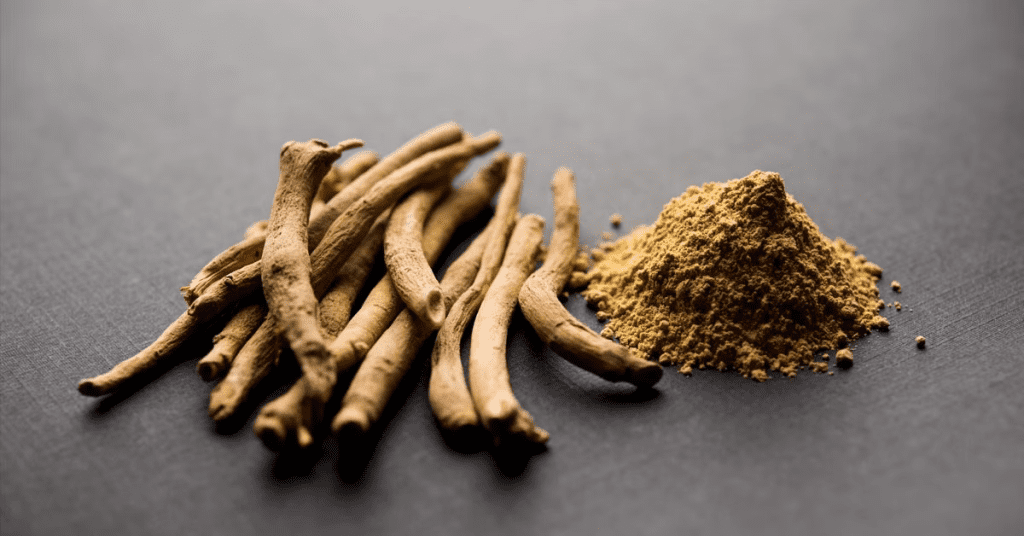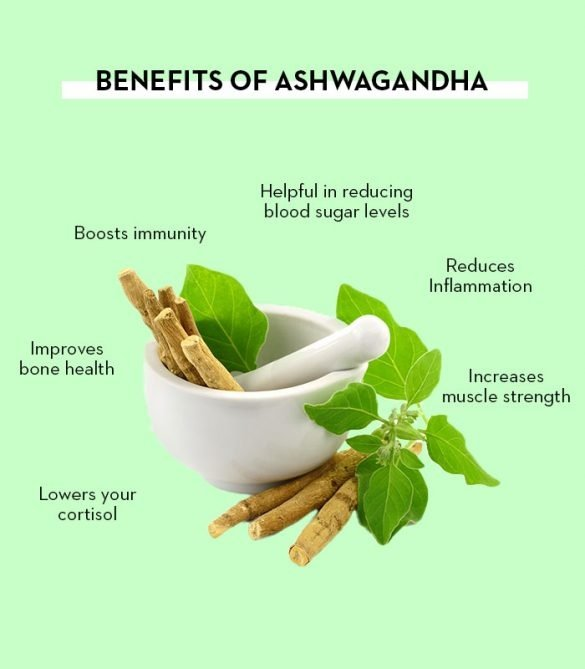
In a fast-paced world, stress seems to be an inevitable part of our lives. But what if there was a natural remedy that could help us combat stress and promote overall well-being? The answer is Ashwagandha, a powerful herb deeply rooted in ancient Ayurvedic traditions, known for its remarkable health benefits.
Table of Contents
What is Ashwagandha?


Ashwagandha, scientifically known as Withania somnifera, is a small shrub native to India, the Middle East, and parts of Africa.
Also referred to as “Indian ginseng” or “winter cherry,” this herb has been used for centuries in traditional medicine to promote vitality and longevity.
Many use this herb to boost energy and reduce stress and anxiety.
Here are some benefits of ahwagandha, based on research.
Benefits of Ashwagandha


A. Stress Buster and Anxiety Reduction
One of the most well-known benefits of Ashwagandha is its ability to combat stress and anxiety. Research suggests that Ashwagandha helps regulate cortisol levels, the hormone responsible for the body’s stress response. By modulating cortisol production, Ashwagandha can help reduce stress and promote a sense of calmness.
B. Improved Cognitive Function
In addition to its stress-relieving properties, Ashwagandha has been shown to enhance cognitive function.
Studies have demonstrated that Ashwagandha may improve memory, attention, and information processing speed. Its neuroprotective effects help protect the brain from oxidative stress and may reduce the risk of neurodegenerative diseases.


C.Boosted Immune System
Ashwagandha is also known for its immune-boosting properties. It helps enhance the activity of immune cells, such as T lymphocytes and natural killer cells, which play a crucial role in defending the body against infections and diseases. By supporting a healthy immune system, Ashwagandha can help keep illnesses at bay.
D.Potential Anti-Inflammatory Effects
Chronic inflammation is linked to various health problems, including heart disease, diabetes, and autoimmune disorders. Ashwagandha exhibits anti-inflammatory properties, which may help reduce inflammation and lower the risk of chronic diseases.




E.Enhanced Physical Performance
Athletes and fitness enthusiasts alike have turned to Ashwagandha for its potential to enhance physical performance.
Studies suggest that Ashwagandha supplementation may increase strength, endurance, and muscle mass, making it a popular choice among those looking to optimize their athletic performance.
Safety and side Effects
Though ashwagandha is likely safe for most people when used in short term, more research is yet to be done on its long term effects.
Ashwagandha may not be safe for a person who:
- is pregnant
- is breastfeeding
- has an autoimmune disease
- has liver problems
Some people using ashwagandha have reported some side effects:
- gastrointestinal discomfort
- drowsiness
- diarrhea
- vomiting
How to Incorporate Ashwagandha into Your Routine
Conclusion
Ashwagandha is truly a remarkable herb with a wide range of health benefits.
From stress relief and anxiety reduction to improved cognitive function and immune support, Ashwagandha offers holistic wellness for both body and mind.
Incorporating Ashwagandha into your daily routine may help you navigate life’s challenges with ease and vitality.
Embrace the power of Ashwagandha and experience the transformative effects it can have on your well-being.

Pingback: Reduce Stress with Your Health Watch -
Pingback: Importance Of Skincare -
Pingback: Understanding Female Alopecia: 7 Key Causes, Symptoms, and Treatment Options -
Thanks for sharing. I read many of your blog posts, cool, your blog is very good.
Thank you for the compliment! I’m glad you enjoyed reading our blog posts. If there’s anything specific you’d like to discuss or ask about, feel free to let me know!